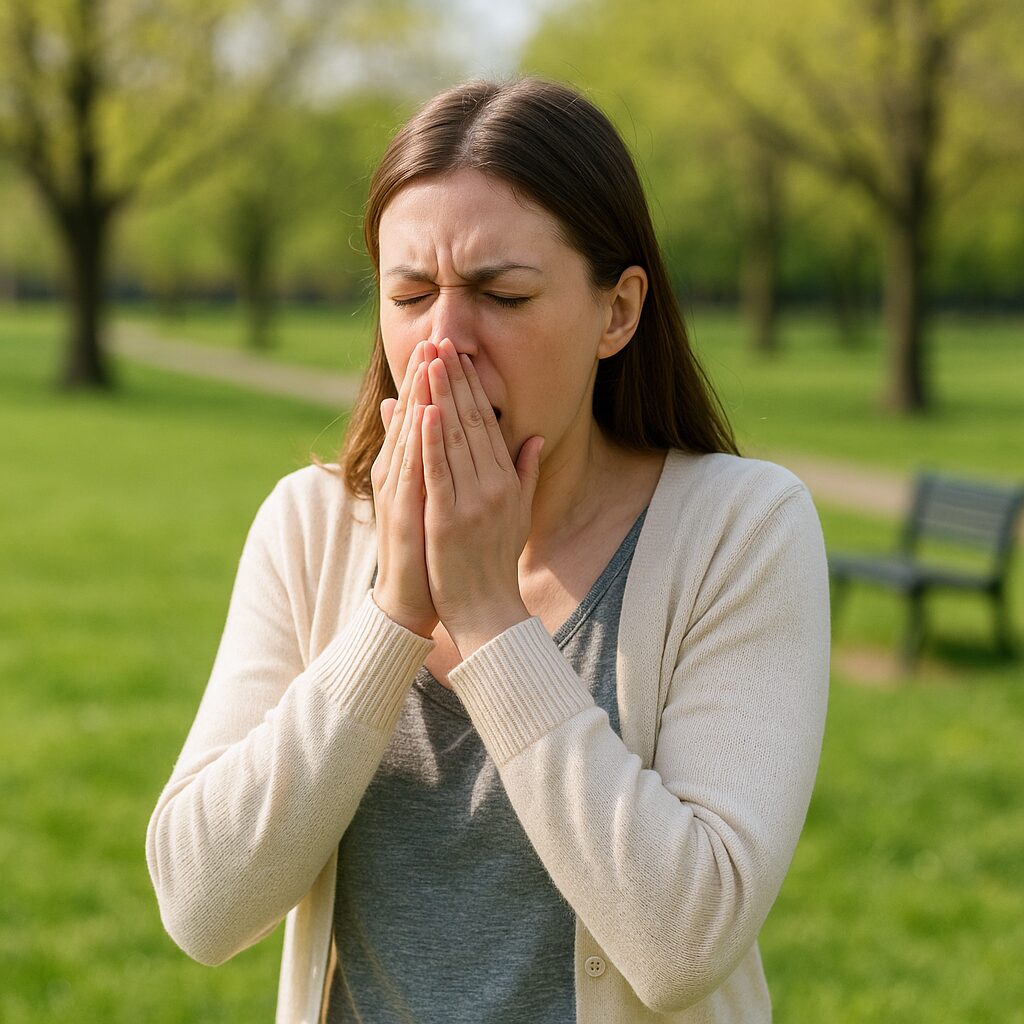Spring brings blooming flowers and warmer weather, but for many people, it also means seasonal pollen allergies. Symptoms such as sneezing, runny nose, and itchy eyes may affect daily life. Understanding the causes and practicing proper management may help reduce discomfort. This article explains common symptoms, lifestyle adjustments, and ways to ease pollen allergy during spring.

1. Causes of Pollen Allergy
Pollen allergy occurs when the immune system mistakenly identifies airborne pollen as harmful. This reaction may trigger inflammation in the nose, eyes, and respiratory system. In spring, pollen from trees, grass, and weeds is especially common.
2. Common Symptoms
– Sneezing and runny nose
– Nasal congestion and itching
– Red, watery, or itchy eyes
– Throat or ear irritation
– In severe cases, asthma flare-ups or fatigue
3. Symptom Relief in Daily Life
– Wear a mask outdoors to reduce pollen exposure
– Limit ventilation during high-pollen days and use air purifiers indoors
– Wash face and hands after going outside
– Change and wash clothes to remove pollen particles
– Stay hydrated to keep mucous membranes moist
4. Nutrition and Immunity
A diet rich in antioxidants and omega-3 fatty acids may help reduce inflammation. Foods such as berries, leafy greens, salmon, and walnuts may support immune balance. Vitamin C and vitamin D may also play supportive roles.
5. Medication Options
Antihistamines, nasal sprays, or eye drops may relieve symptoms. Since responses vary by individual, consulting a healthcare professional is generally recommended for safe use.
6. Preventive Measures
– Avoid outdoor activity during peak pollen hours
– Wear sunglasses to protect the eyes
– Use HEPA filters when cleaning
– Manage pets that may carry pollen indoors
– Maintain regular exercise and sleep to strengthen immunity
🍀
Spring pollen allergy can be bothersome, but with proper precautions and lifestyle adjustments, symptoms may be reduced. Identifying triggers and practicing consistent care may help individuals enjoy the season more comfortably.
References and Further Reading
World Health Organization (WHO) – Seasonal Allergy Guidelines
National Institutes of Health (NIH) – Allergic Rhinitis and Pollen
American Academy of Allergy, Asthma & Immunology (AAAAI) – Pollen Allergy Guide
※ This article is for general informational purposes only. Allergy reactions may vary individually, and professional guidance is generally recommended for accurate diagnosis and treatment.